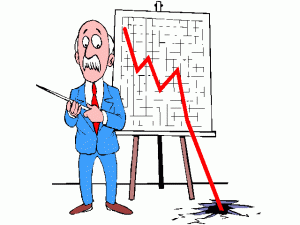This article in
The Atlantic by Derek Thompson makes lots of interesting research-based
correlations between wealth and happiness, for individuals and
countries. Have a read. In short the answers are, "Kinda", "Up to a
point" and "It depends."
From my interest area of employee engagement, some key comments were that its not so much the lack of wealth that makes unemployed people unhappy. Its the unemployment. And the self employed are happier than the jobbed (until they're not.) Work (or 'jobs', if you prefer to use that similar but not totally synonymous word) provides us humans with more than money. We'll take the money we need, and the lack of it up to a point will make us unhappy, but past a further point, more won't make us happier. Those points are different for different people and change with time and circumstance. The unemployed get sick and depressed partly from a lack of money but mostly from a lack of a sense of self worth, inclusion, contribution and development. Plenty of people in sucky jobs get the same negatives even if they have an income. That negatively impacts on health, attendance and productivity.
To me, the overwhelming theme of the findings is that people are different. Average findings about wealth and how it relates to happiness (if wealth really is any kind of an indicator about employee motivation) might be interesting but it isn't useful. People are different. That's the level of research that becomes useful. And that is the level when you as a leader observe and investigate the individual people you lead. What works for them?
Happiness is a staggeringly shifty set of goalposts to aim for and really isn't the same as engagement. But if you grow a workplace culture that supports self awareness, movement towards skill mastery, increasing autonomy, some sense of purpose and the ability to influence others, then you'll engage your people. If they've got that, they won't be unhappy.
A lot of my blog readers come from countries celebrating a public holiday today - Queen's Birthday. It's a bit anachronistic but a holiday is a holiday and in the southern hemisphere, there's a long, cold and dark winter until the next Monday off in the Spring. The definition of employee engagement is when an employee chooses to do some work they don't have to do. They engage in a discretionary activity and that activity happens to be some work. That occurs at the workplace and these days the workplace is very hard for many to pin to a single location. (Wherever your smartphone is, there you are!) So, on a public holiday, people are getting all discretionarily active all over the place. What are you doing? What do you get out of that activity? Are there aspects of your work where you get the same jollies? If not, you could be one of the three quarters or so of workers who are either disengaged or merely present at work. Maybe spend some of your holiday thinking about that and make a change?
From my interest area of employee engagement, some key comments were that its not so much the lack of wealth that makes unemployed people unhappy. Its the unemployment. And the self employed are happier than the jobbed (until they're not.) Work (or 'jobs', if you prefer to use that similar but not totally synonymous word) provides us humans with more than money. We'll take the money we need, and the lack of it up to a point will make us unhappy, but past a further point, more won't make us happier. Those points are different for different people and change with time and circumstance. The unemployed get sick and depressed partly from a lack of money but mostly from a lack of a sense of self worth, inclusion, contribution and development. Plenty of people in sucky jobs get the same negatives even if they have an income. That negatively impacts on health, attendance and productivity.
To me, the overwhelming theme of the findings is that people are different. Average findings about wealth and how it relates to happiness (if wealth really is any kind of an indicator about employee motivation) might be interesting but it isn't useful. People are different. That's the level of research that becomes useful. And that is the level when you as a leader observe and investigate the individual people you lead. What works for them?
Happiness is a staggeringly shifty set of goalposts to aim for and really isn't the same as engagement. But if you grow a workplace culture that supports self awareness, movement towards skill mastery, increasing autonomy, some sense of purpose and the ability to influence others, then you'll engage your people. If they've got that, they won't be unhappy.
A lot of my blog readers come from countries celebrating a public holiday today - Queen's Birthday. It's a bit anachronistic but a holiday is a holiday and in the southern hemisphere, there's a long, cold and dark winter until the next Monday off in the Spring. The definition of employee engagement is when an employee chooses to do some work they don't have to do. They engage in a discretionary activity and that activity happens to be some work. That occurs at the workplace and these days the workplace is very hard for many to pin to a single location. (Wherever your smartphone is, there you are!) So, on a public holiday, people are getting all discretionarily active all over the place. What are you doing? What do you get out of that activity? Are there aspects of your work where you get the same jollies? If not, you could be one of the three quarters or so of workers who are either disengaged or merely present at work. Maybe spend some of your holiday thinking about that and make a change?


No comments:
Post a Comment